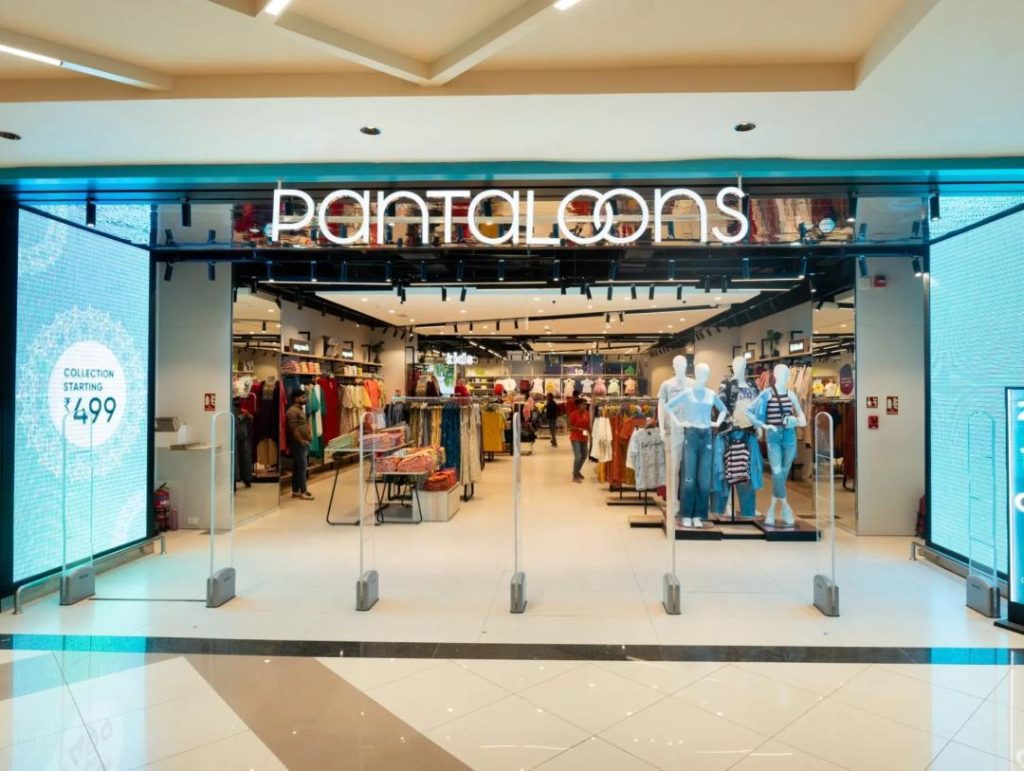
Why did shares of Pantaloons-owner Aditya Birla Fashion dive by 67% in one day?
On Thursday, a sudden and unexpected shockwave rocked the Indian stock market as shares of Aditya Birla Fashion and Retail (ABFRL), the owner of popular fashion brands such as Pantaloons, Peter England, and Forever 21, plummeted by a staggering 67%. The company’s shares, which had closed at ₹268.95 on Wednesday, tumbled to ₹88.75, wiping out a significant portion of its market value in a single day.
The precipitous decline in ABFRL’s share price was attributed to the company’s decision to de-merge its lifestyle brands division, Aditya Birla Lifestyle Brands (ABL), from itself. The de-merger, which is expected to be completed by next month, will see the two entities listed separately, with ABL being an independent publicly traded company.
But why did this de-merger trigger such a drastic response in the market? To understand the reasoning behind the sharp decline, it’s essential to delve into the intricacies of the de-merger process and its implications on the company’s financials.
The de-merger: A blessing in disguise?
On the surface, the de-merger might seem like a bold move by ABFRL to unlock value for its shareholders. By separating its fashion and lifestyle brands from its retail business, the company aims to create two focused entities with distinct strategies and operations. This, in turn, is expected to enhance the growth potential of both companies.
However, the de-merger came with a significant twist. As part of the process, the value of ABL, which includes popular brands like Louis Philippe, Van Heusen, and Allen Solly, was deducted from ABFRL’s stock price. This move essentially transferred the value of the lifestyle brands to ABL, leaving ABFRL with a significantly lower valuation.
The impact on ABFRL’s financials
The de-merger’s impact on ABFRL’s financials was twofold. Firstly, the company’s revenue and profit numbers were significantly impacted, leading to a downward revision of its financial performance. This, in turn, led to a decline in investor confidence, resulting in the sharp fall in share price.
Secondly, the de-merger also led to a revaluation of ABFRL’s assets and liabilities. As the value of ABL was deducted from ABFRL’s stock price, the company’s net worth and book value were significantly reduced. This, in turn, affected the company’s debt-to-equity ratio, making it appear more leveraged than it actually is.
Why did investors panic?
So, why did investors panic so severely in response to the de-merger? Several factors contributed to the sharp decline in ABFRL’s share price:
- Lack of clarity: The de-merger announcement lacked clarity on the valuation of ABL and the impact it would have on ABFRL’s financials. This uncertainty led to a rush to sell, as investors sought to avoid potential losses.
- Over-reaction: The market over-reacted to the news, with investors fearing that the de-merger would lead to a significant decline in ABFRL’s revenue and profitability.
- Lack of visibility: The company’s financial performance has been under pressure in recent quarters, making it challenging for investors to assess the impact of the de-merger on its future prospects.
- Market sentiment: The sharp decline in ABFRL’s share price was also driven by broader market sentiment. The Indian stock market has been experiencing a correction in recent weeks, with investors becoming increasingly risk-averse.
A lesson for investors
The sudden and unexpected plunge in ABFRL’s share price serves as a reminder for investors to remain cautious and vigilant. The de-merger highlights the importance of understanding the intricacies of a company’s financials and the potential impact of a major corporate event on its stock price.
As investors, it’s essential to stay informed and up-to-date on the latest developments in the companies we invest in. This includes understanding the potential risks and rewards associated with a company’s strategic decisions, such as the de-merger of a significant business division.
Conclusion
The 67% decline in Aditya Birla Fashion and Retail’s share price was a sharp reminder of the importance of staying informed and vigilant in the world of finance. While the de-merger may have been a strategic move by the company to unlock value for its shareholders, it’s essential for investors to understand the potential impact on the company’s financials and its stock price.
As the Indian stock market continues to evolve and adapt to changing market conditions, investors must remain proactive and informed to navigate the complexities of the market. By doing so, we can make informed investment decisions and maximize our returns in the long run.
News Source:






